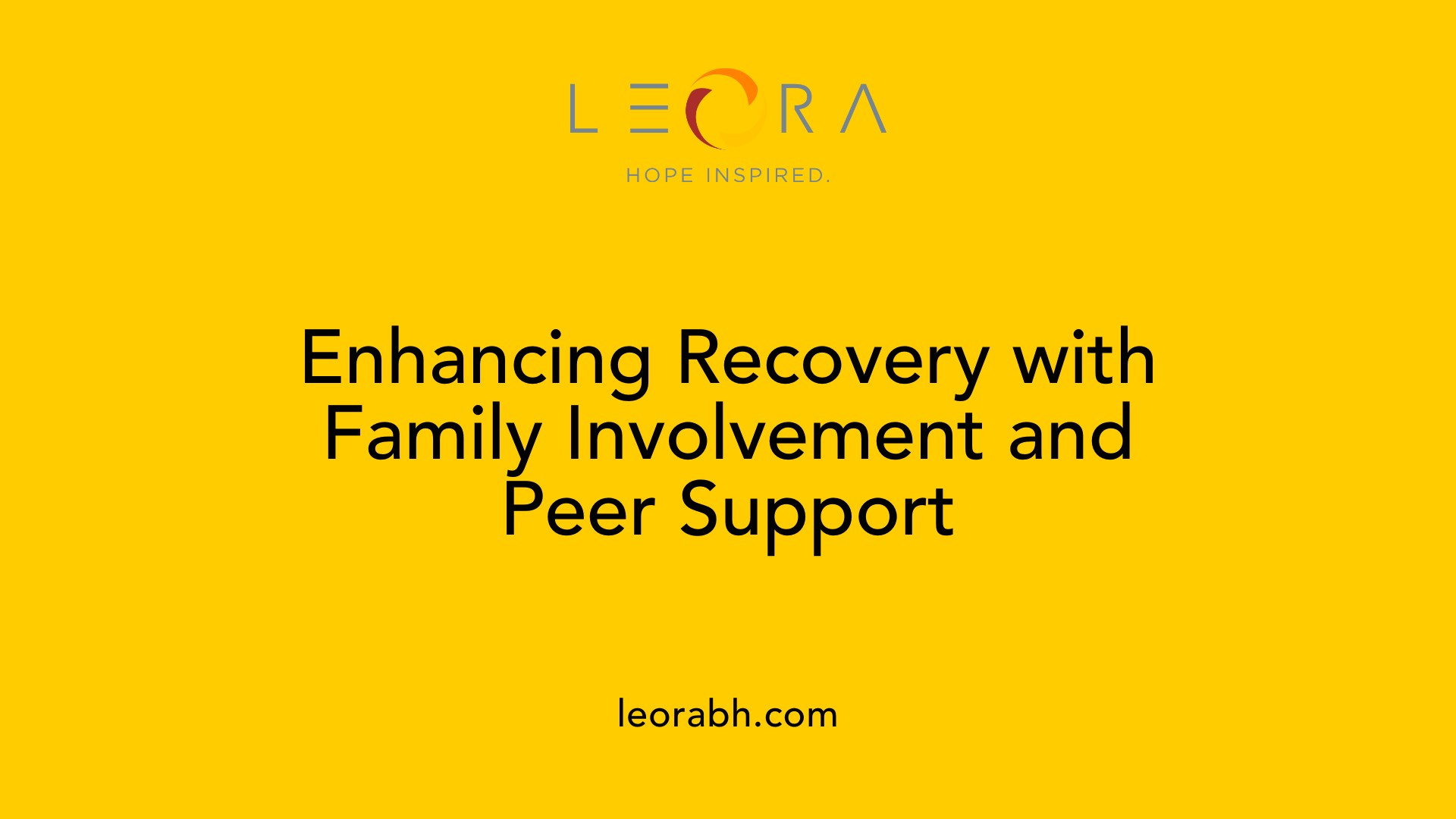How IOP treatment helps people reintegrate into their communities
Bridging the Gap: The Role of Intensive Outpatient Programs in Community Reintegration
Understanding the Impact of IOP on Long-Term Recovery and Social Reentry
Intensive Outpatient Programs (IOPs) are transforming recovery pathways for individuals overcoming addiction and mental health challenges. By providing a structured, flexible, and supportive environment, IOPs facilitate not only sobriety but also meaningful reintegration into community life. This article explores how IOP treatment supports community functioning, promotes ongoing recovery, enhances emotional well-being, and sustains social participation, ultimately helping individuals rebuild their lives and communities.
Main Components of IOP Supporting Community Functioning
 Intensive Outpatient Programs (IOPs) focus on helping individuals reintegrate into their communities through a variety of structured therapeutic services and support mechanisms. The main components include individual counseling sessions, which offer personalized treatment and address specific mental health and substance use issues.
Intensive Outpatient Programs (IOPs) focus on helping individuals reintegrate into their communities through a variety of structured therapeutic services and support mechanisms. The main components include individual counseling sessions, which offer personalized treatment and address specific mental health and substance use issues.
Group therapy is a cornerstone of IOPs, providing peer support, shared experiences, and mutual accountability. Family therapy is also often incorporated to strengthen relationships, improve communication, and involve loved ones in the recovery process.
Skill-building workshops form an essential part of IOPs, offering practical education on topics like stress management, relapse prevention, employment skills, and social functioning. These workshops are tailored to meet individual needs and help participants develop confidence and independence.
Psychoeducation and holistic approaches are emphasized, including activities like mindfulness, yoga, art therapy, and nutrition education. These practices foster overall well-being, emotional regulation, and stress resilience.
Peer support groups further reinforce community connection, reducing isolation and fostering a sense of belonging. These groups often serve as ongoing support networks beyond formal treatment.
Participants are encouraged to practice new skills in real-world settings, such as engaging in work, volunteering, or social activities. This real-life engagement helps build practical skills and confidence essential for successful community reintegration.
Case management plays a crucial role by linking individuals to community resources such as housing, employment, and healthcare. Family involvement is often integrated to provide additional support and create a stable environment for recovery.
All these components combine to promote personal growth, stable sobriety, and meaningful participation in community life, making IOPs a vital step in long-term recovery and social reintegration.
Strategies within IOP Supporting Community Functioning and Long-Term Sobriety
 Within Intensive Outpatient Programs (IOP), several strategies play a vital role in fostering community functioning and promoting sustained sobriety. One of the foundational approaches is the development of personalized treatment plans. These programs tailor therapies and activities to meet the specific needs of each individual, ensuring that treatment addresses unique challenges and goals.
Within Intensive Outpatient Programs (IOP), several strategies play a vital role in fostering community functioning and promoting sustained sobriety. One of the foundational approaches is the development of personalized treatment plans. These programs tailor therapies and activities to meet the specific needs of each individual, ensuring that treatment addresses unique challenges and goals.
A key component is the ongoing reinforcement of relapse prevention skills. Clients learn how to identify triggers, develop coping mechanisms, and manage high-risk situations effectively. These skills are practiced in real-world settings, supported by the treatment team, making relapse less likely.
Community engagement and social integration are also prioritized. IOP encourages participants to reconnect with social networks, participate in community activities, and build meaningful relationships. This not only reduces feelings of isolation but also enhances psychosocial functioning.
Collaboration with community resources and families further strengthens recovery. Programs work closely with local organizations, healthcare providers, and families to create a supportive environment that extends beyond treatment. Family involvement can improve communication, provide additional support, and reinforce recovery goals.
Evidence-based therapies, such as Cognitive-Behavioral Therapy (CBT) and Dialectical Behavior Therapy (DBT), are employed to modify negative behaviors, improve emotional regulation, and develop resilience. These therapies underpin the behavioral changes necessary for lasting sobriety.
Peer support groups and case management services are integral to maintaining motivation and social networks. Support groups foster a sense of community, reduce stigma, and offer shared experiences, while case managers help coordinate care, access resources, and ensure continuity of treatment.
Planning for the transition from treatment is crucial. Discharge planning and ongoing care arrangements help clients maintain recovery gains and prevent relapse. This includes connecting individuals with community resources, support systems, and ongoing therapy options.
Finally, building social networks and fostering motivation are central to long-term success. IOPs focus on empowering clients to develop new relationships, pursue personal goals, and stay committed to their recovery journey.
Overall, these integrated strategies enable individuals to rebuild their social lives, improve functioning, and achieve lasting sobriety, facilitating a smoother transition back into their community roles.
Promotion of Ongoing Recovery and Social Reentry Post-Treatment
 Intensive Outpatient Programs (IOPs) are designed to support individuals in maintaining their recovery while reintegrating into daily life and the community. These programs emphasize structured therapy sessions and skill development to reinforce recovery practices learned during inpatient or residential treatment.
Intensive Outpatient Programs (IOPs) are designed to support individuals in maintaining their recovery while reintegrating into daily life and the community. These programs emphasize structured therapy sessions and skill development to reinforce recovery practices learned during inpatient or residential treatment.
A core component of IOPs is relapse prevention education. Participants learn to identify triggers, develop coping strategies, and manage high-risk situations, reducing the likelihood of returning to substance use or mental health deterioration. This ongoing education helps sustain the progress made during initial treatment phases.
Family involvement plays a crucial role in fostering a supportive environment. Many IOPs encourage family participation in therapy sessions, which improves communication, strengthens relationships, and builds a reliable community of support at home.
Peer support and community engagement are integral to the healing process. Connecting with others who share similar experiences creates a sense of belonging and accountability. Support groups, alumni networks, and community activities help reinforce recovery and provide ongoing encouragement.
Continuity of care and detailed aftercare planning are vital. IOPs often include coordination with community resources, ongoing counseling, and peer-led support groups. Such measures ensure a smooth transition from structured treatment to everyday life, reducing the chances of relapse.
Developing healthy routines is another focus. Establishing stable daily habits around work, self-care, and social relationships promotes a sense of normalcy and self-efficacy. Celebrating recovery milestones can motivate continued progress and reinforce commitment.
Overall, IOPs serve as a bridge between intensive treatment and independent living. They provide ongoing support, education, and community connection, which are all essential factors for sustained recovery and successful social reentry. This comprehensive approach helps individuals rebuild their lives, foster resilience, and achieve long-term sobriety.
Role of IOP in Enhancing Emotional Well-Being and Community Participation

What role does IOP play in enhancing emotional well-being and community participation for individuals in recovery?
Participation in an Intensive Outpatient Program (IOP) is instrumental in improving emotional health and encouraging active community involvement among those recovering from addiction, trauma, or mental health challenges.
One of the primary functions of IOP is providing therapeutic support tailored to individual needs. This includes various modes of therapy such as group sessions, individual counseling, family therapy, and educational workshops. These activities help individuals develop healthier coping mechanisms, emotional regulation skills, and foster emotional growth. Techniques like Cognitive-Behavioral Therapy (CBT) and trauma-informed care equip participants with tools to manage stress, reduce anxiety, and build resilience.
Building a strong support system is crucial to emotional well-being. IOP facilitates this through peer support groups and connections within the recovery community. These networks create a sense of belonging and shared purpose, which can significantly reduce feelings of isolation often experienced during recovery. Family involvement in IOP further strengthens support systems, enhancing communication and understanding, which are vital for emotional stability.
Community collaborations and psychoeducation activities are also central to IOP's approach. These initiatives educate participants about mental health issues, stigma, and recovery strategies, empowering them to participate actively in community life. As participants gain confidence and skills, they are better equipped to re-engage with their social environments.
Research indicates that IOP leads to a decrease in reliance on emergency services and inpatient psychiatric hospitalizations. This suggests improved mental health stability and better crisis management abilities. Such stability fosters a safer and more manageable recovery process, enabling individuals to focus on rebuilding their lives.
Moreover, IOP supports social reintegration by encouraging engagement in community activities, employment, and social relationships. This active participation helps foster a sense of purpose, self-worth, and belonging—elements essential for sustained recovery.
In summary, IOP plays a comprehensive role in both enhancing emotional well-being and promoting community participation. It provides the therapeutic, educational, and social support necessary for individuals to develop resilience, rebuild social bonds, and reintegrate fully into their community life, ultimately leading to more successful and enduring recovery outcomes.
Facilitating Community Reintegration and Long-Term Recovery through IOP
How does Intensive Outpatient Program (IOP) facilitate community reintegration and long-term recovery?
Intensive Outpatient Programs (IOPs) are designed to support individuals in transitioning smoothly back into community life while maintaining continuous recovery efforts. They offer a structured, evidence-based treatment environment that emphasizes therapy, skill-building, and peer support, all within a supportive and flexible framework.
One of the main features of IOPs is that participants live at home and are able to keep up with daily responsibilities such as work, education, or family care. This setup enables them to practice recovery skills in real-world settings, which is crucial for lasting change. Programs include a combination of group and individual therapies, relapse prevention techniques, and life skills workshops that help individuals manage stress, reconnect socially, and develop coping strategies.
Continuity of care is another vital aspect. IOPs often serve as a step-down program after inpatient or residential treatment, providing ongoing support to prevent relapse. They foster stability by encouraging accountability and self-efficacy—helping individuals regain confidence and independence.
Rebuilding social connections and establishing community support networks are integral to long-term wellness. IOPs facilitate integration into community activities and relationships, which boosts motivation and a sense of belonging.
By blending treatment with everyday life, IOPs promote stability, personal growth, and community participation, making them effective tools for sustained recovery. Overall, they bridge the gap between clinical settings and the social world, helping individuals create a resilient foundation for their future.
Success Rates and Overarching Benefits of IOP
What is the success rate of IOP programs in maintaining sobriety and supporting community involvement?
Intensive Outpatient Programs (IOPs) are highly regarded for their effectiveness in fostering long-term recovery. Research indicates that approximately 55% of participants who complete IOP treatment remain abstinent six months afterward. This success rate tends to improve when individuals continue engaging with relapse prevention strategies and ongoing support.
Studies, including randomized trials and meta-analyses, show that IOPs yield recovery outcomes comparable to inpatient and residential treatments. This makes them a flexible, less restrictive option that still delivers structured therapeutic care.
Beyond abstinence, IOPs significantly contribute to community reintegration. They encourage building local support networks, applying real-world skills, and maintaining existing social ties. These community connections are essential for sustaining recovery and reducing feelings of isolation.
Together, these results underscore that IOPs are a vital part of the continuum of care. They support ongoing sobriety and help individuals re-engage with their communities, fostering social stability and personal growth that benefits long-term recovery.
Continuing the Journey: The Enduring Impact of IOP on Community and Well-Being
In conclusion, Intensive Outpatient Programs serve as a crucial component in the continuum of care for individuals recovering from addiction and mental health challenges. By offering a flexible, holistic, and structured approach, IOPs not only support sobriety but also facilitate meaningful community reintegration. Their emphasis on personalized treatment, peer and family involvement, real-world skill practice, and ongoing support builds a foundation for long-term recovery and emotional well-being. As society increasingly recognizes the importance of community-oriented care, IOPs stand out as effective pathways that empower individuals to reclaim their lives, foster social connections, and contribute positively to their communities.
References
- How IOP Supports Long-Term Recovery and Reintegration
- Chapter 9. Adapting Intensive Outpatient Treatment for Specific ...
- The Benefits of Intensive Outpatient (IOP) After Residential Treatment
- What is Community Reintegration? | ILC - Integrative Life Center
- 10 Treatment for Offenders Under Community Supervision - NCBI
- The Role of Intensive Outpatient Programs in Recovery
- Should You Go to an IOP After Inpatient Rehab?
Find Your Inner Light
Related Articles
Schedule an Assessment
Leora Behavioral Health provides comprehensive treatment services, including ambulatory detox, mental health IOP, and SUD IOP, to support your journey toward lasting recovery.
Our caring team will guide you through the admissions process and create a personalized treatment plan tailored to your unique needs. We welcome walk-ins. If you or a loved one is struggling, reach out today. We’re here to help.


.svg)




.svg)
.svg)
.svg)
.svg)
